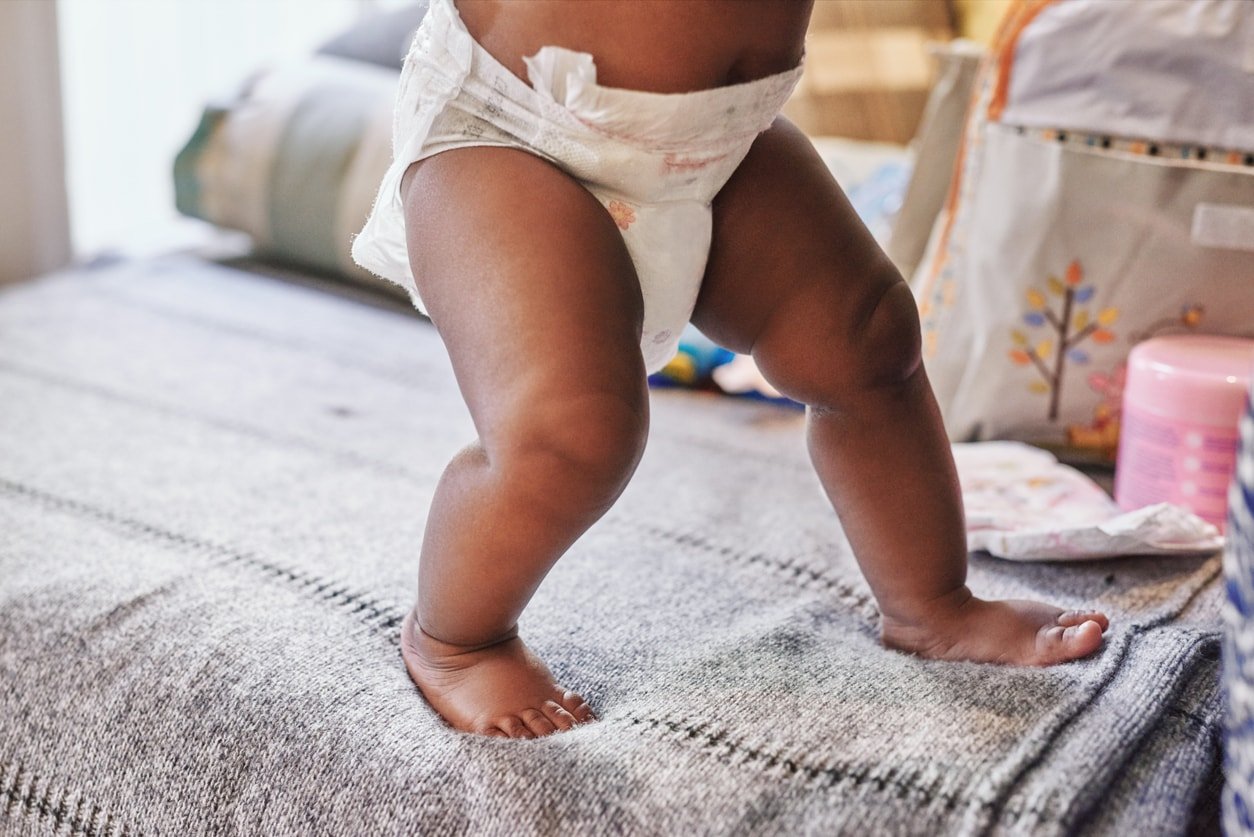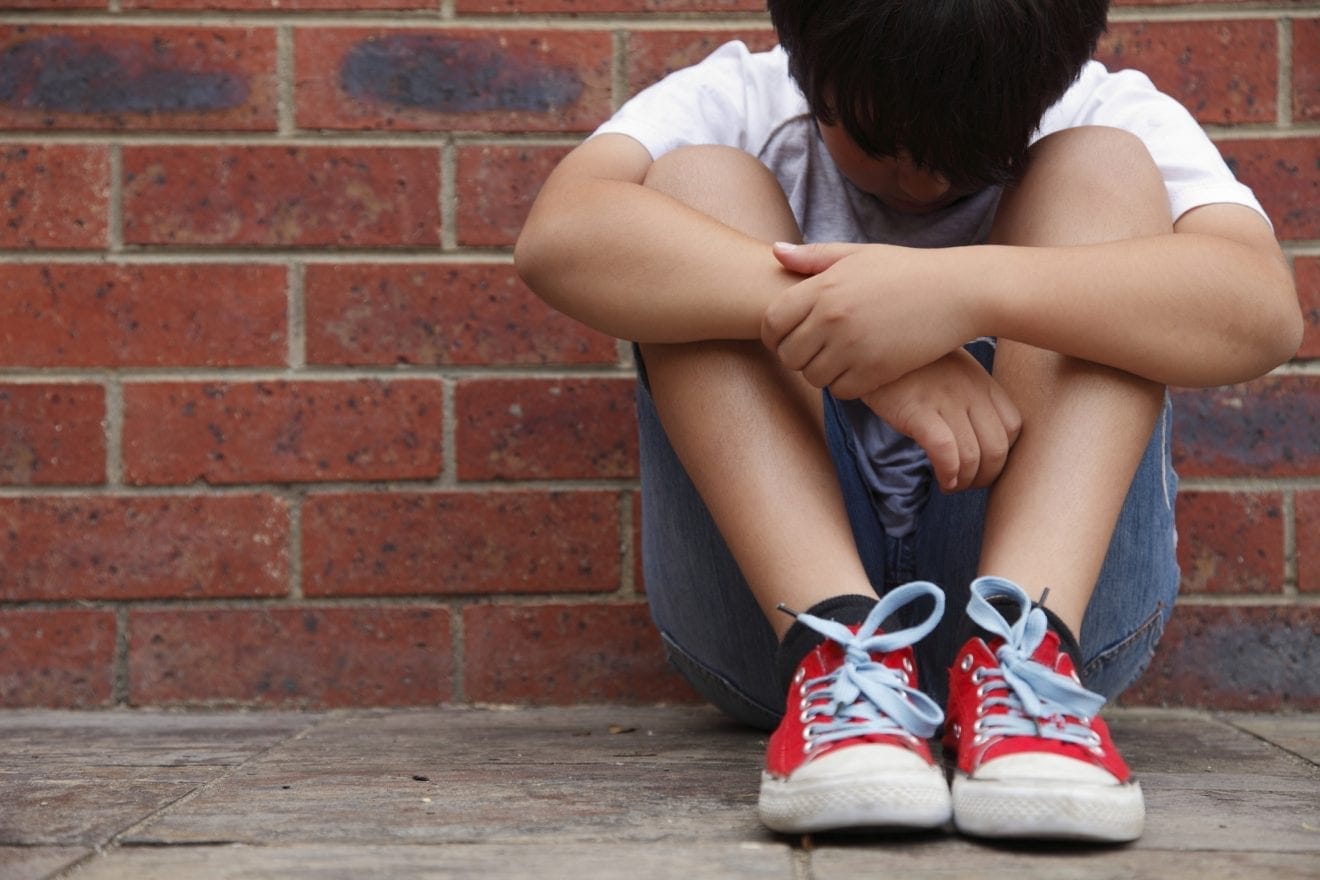Watching your baby learn new skills and grow their confidence is a fun and rewarding time for parents. The first year of your baby’s life is filled with amazement and many questions, especially when it comes to understanding when your baby will start standing up. Many wonder, “When will my baby start standing up?” or “At what age can I start helping my baby stand?” or even, “Is it okay for my baby to fall when they try to stand?”
If you have ever had these questions, you’re in luck! This article will walk you through everything you need to know regarding when and how your baby will learn to stand.
When Do Babies Stand With Support?

For babies, the ages of 4-12 months are full of quick-moving and evolving developmental stages. The first skill your baby needs to master to stand independently is learning to stand with support.
Around four months, your baby can push their feet down on a hard surface or your legs while you hold them securely under their arms.1,2 As they do so, your baby will love to look at your face as you talk to them or tell them a story. They may even start bouncing up and down as you talk.2
As your baby approaches six months, they should start to bear more weight on their legs and be able to support themselves with their legs.3 They still need you to hold them securely under their arms as they are not quite ready to stand unassisted. Take the time while your baby stands to show them their environment. Tell them the name or shape of the objects they are seeing or the color of their toys. Babies are curious, and this is a great way to help them explore their environment.4
At around 9-11 months, you will notice your baby is gaining more confidence in their newfound standing ability. Around this time, many babies can stand with only the support of furniture or your hands. They may pull up on furniture using one foot to lead them into position. They may also try to cruise or shuffle around the furniture as they explore the next step: walking.5,6
When Do Babies Stand Without Support?
When a baby stands up without support, the timeframe for reaching that developmental milestone can vary widely. The most common timeframe for a baby to stand without support is around 11-12 months, but some babies may do it before or after 12 months.
After your baby can pull up on furniture, they will start standing up independently for a few seconds before grabbing back onto support or lowering themselves to the ground.6 Many babies will start to walk around furniture while maintaining a hold of the furniture.
Around 12-14 months, you may notice that your baby will start standing up from the floor independently without support. So hold onto your hats because a walking baby is in your near future!6
What Should You Do If Your Baby Falls?
As your baby learns to stand and eventually walk, falls are unavoidable. The best thing you can do to help decrease your baby’s risk of injury is to ensure they are in a safe and secure environment as they explore. Here are some tips:
- Use a baby gate to block access to stairways.
- Remove or cover the hard edges of furniture.
- Remove sharp items from the room even if you think your baby can’t find or reach them.
- DO NOT use a baby walker. Serious injury can occur with a baby walker, even with parental supervision.7
- Secure heavy furniture to the wall, and remove any lightweight furniture your baby can pull themselves up on.8,9
If your baby has a severe fall or is not acting like themselves after a fall, always seek medical attention. Your doctor can evaluate your baby for injuries and provide medical treatment.
How Long Do Babies Stand Before Walking?

Once your baby stands up independently, the exciting world of walking is just around the corner. Most babies will take their first steps with support around 9-12 months and usually start to take steps unsupported at around 11-15 months.6,10 When your baby reaches 18 months, you will be hot on their heels, chasing them around as they walk and run without support.11 Watch out, world, your baby is on the move!
Even though there is a standard timeline outlining an infant’s developmental milestones, it is essential to remember that each baby is on their journey. These guidelines help you understand what milestone to watch out for and when, but they are not a hard-and-fast rule. One baby may stand without support by 11 months old, while another may not until 15 months old — and that’s okay.
If you have questions about your baby’s developmental milestones, the CDC has put together a developmental milestones checklist that you can use to track your baby’s development.12 Your doctor will periodically check your baby’s development during their well-baby checkups.
Talk to your doctor if you have any concerns or believe your baby is not reaching the developmental milestone of standing up when they should be. They can address your baby’s needs and start therapies to help them reach their full potential.

 PARENTING TIPS
PARENTING TIPS PREGNANCY
PREGNANCY BABY CARE
BABY CARE TODDLERS
TODDLERS TEENS
TEENS HEALTH CARE
HEALTH CARE ACTIVITIES & CRAFTS
ACTIVITIES & CRAFTS


